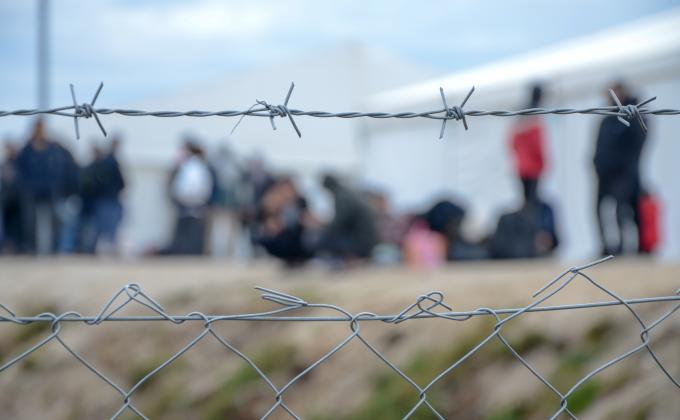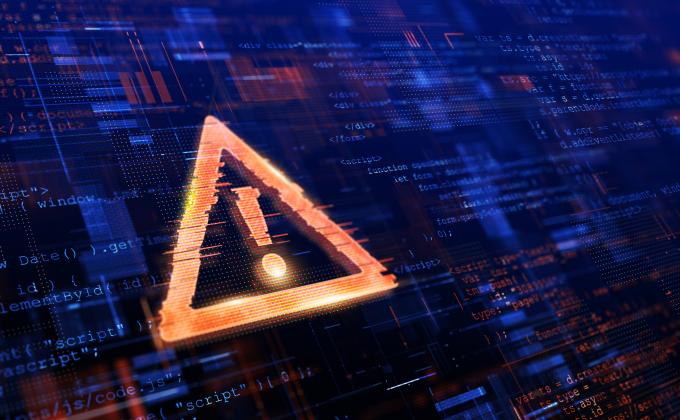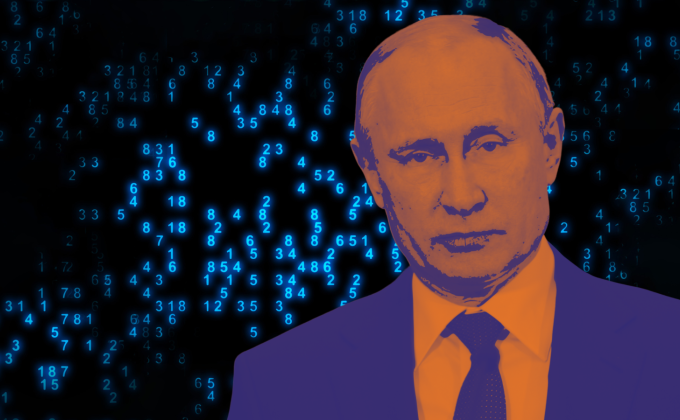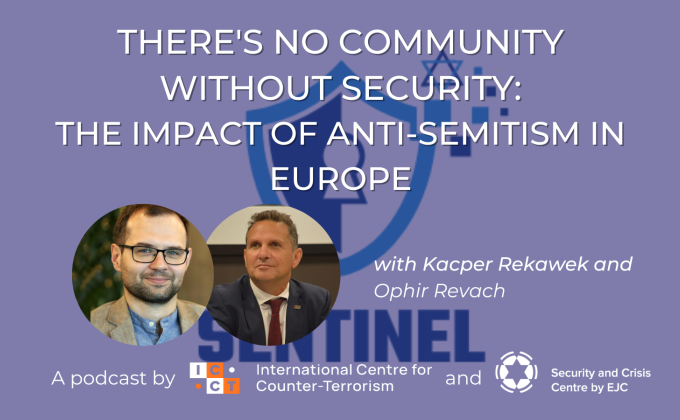*this article was initially published by the Atlantische Commissie and is available in Dutch here.
It has now been nearly three months since Hayat Tahrir al-Sham (HTS) came to power in Syria. After the joy over the end of the Assad era, all eyes are on HTS to see whether they can govern in a highly fragmented Syria and prevent a potential resurgence of the Islamic State (IS). Both the US and European countries have worked together in Global Coalition against Daesh since 2014.
HTS, which was formerly affiliated with al-Qaeda, is still considered a terrorist organisation by the United Nations, the European Union, and several countries including the US, the UK, and the Netherlands. This means various sanctions have been imposed on both HTS and rebel leader Abu Mohammed al-Jolani, making it very difficult to negotiate with HTS about Syria's future.
As long as HTS effectively controls a large part of the territory, enjoys popular support, and its power is not challenged by other rebel groups, HTS forms the de facto government of Syria. However, in the last couple of months violence has erupted and hundreds of Alawites – a religious minority to which Assad also belonged – have already been killed in the Latakia province and more recently violence against the Druze community.
It is estimated that around 2,500 ISIS fighters remain active in Syria and Iraq, and since HTS' takeover, ISI has incrementally increased the number of attacks Earlier this year, Jolani's government thwarted an ISIS attack on the Shia Sayyida Zaynab shrine in Damascus. The major concern is whether ISIS will resurge and whether the de facto government will be capable of defeating IS. The extent to which HTS succeeds in forming and credible government depends on several factors. Consolidation of power, legitimacy, economic reconstruction, and counter-terrorism are crucial.
HTS as de facto government
HTS currently forms the de facto government in Syria. An important consequence is that HTS must uphold Syria’s rights and obligations under international law. This essentially means that HTS can enter into and must comply with international treaties, has access to state funds and assets, and enjoys immunity from criminal prosecution under foreign jurisdictions. The flip side is that HTS must comply with international human rights law, international humanitarian law, and obligations arising from UN resolutions and counter-terrorism efforts.
Consolidation of power among rebel groups
Well before the fall of the Assad regime, HTS was working to consolidate power, particularly around Idlib. Various fighting factions such as Hurras al-Din and Ahrar al-Sham were dispelled, defeated, or merged with HTS. Before their advance, HTS frequently clashed with the Turkish-backed Syrian National Army (SNA). Shortly after taking power, al-Jolani stated that several rebel groups would be dissolved and integrated into the new Syrian army. From the outset, HTS has been negotiating with various rebel factions to create unity. The talks, particularly with the US-backed Syrian Democratic Forces (SDF), were difficult. On March 10, an agreement was reached between the SDF and al-Jolani, under which SDF forces will be integrated into the new Syrian army, and commitments were made to ensure Kurdish representation in Damascus. Despite this agreement, tensions with Alawites are rising, and the religious leader of the Druze in southern Syria claims no deal was reached with al-Jolani’s government.
Legitimacy among the population
To gain public support, it is important for HTS to form an inclusive government that respects the rights of women and minorities – such as Alawites, Kurds, Christians, and Druze. HTS’ PR campaign presents rebel leader al-Jolani – now using his birth name Ahmed al-Sharaa – wearing regular clothes, shaking hands with citizens, and giving interviews as a moderate leader. Shortly after the takeover, HTS entered into dialogues with different religious leaders.
Furthermore, It remains to be seen whether HTS can be seen as moderate if some members are not willing to to renounce support for foreign terrorist organisations such as Hamas and Palestinian Islamic Jihad. The risk of a moderate course is that hardliners within HTS might defect to IS or al-Qaeda. Moreover, while HTS portrays itself as a victim of the Assad regime, it is also guilty of committing horrific crimes, including in western Aleppo in early 2020. HTS should also address crimes committed by its own fighters and take more concrete steps to prevent the revenge killings of Alawites.
Economic reconstruction
Given Syria’s severe poverty, rebuilding the economy will be a major challenge. After over 13 years of civil war, the gross national product fell from $67.5 billion in 2011 before the Arab Spring to $9 billion. Harsh sanctions, corruption, and the fact that Syria is the largest producer of Captagon – a highly addictive amphetamine and widely used by fighters – further complicate the reconstruction.
From the very beginning, al-Jolani has been in talks with various world leaders to lift the sanctions. The EU has suspended some sanctions on among other things transport, energy, and banking, and pledged nearly €2.5 billion during the 9th Syria Conference for rebuilding the country. However, this relief is conditional and will not be sufficient to rebuild the country. If human rights, particularly those of minorities, are not sufficiently safeguarded, the exemptions will be reversed. These sanctions are separate from those imposed on HTS due to its designation as a terrorist organisation. The process of “delisting” at the UN is complex and, according to some experts, should not be rushed.
Resurgence of ISIS?
While attention is focused on HTS, we must not lose sight of the ISIS. Although ISIS’ caliphate has been defeated, its ideology remains alive and kicking. Several IS provinces still pose a threat. In 2024, a number of attacks were carried out by ISKP – the Afghan branch – such as major attacks at a Moscow theatre and a commemoration of Soleimani in Iran, resulting in 150 and 100 fatalities, respectively. Several thwarted attacks in Europe linked to ISKP are among the main reasons why various countries have raised their terrorism threat levels. ISKP and other IS branches were more active in 2024, particularly ISIS in Syria, which was responsible for several foiled attacks. ISIS also continues to inspire and motivate individuals to commit attacks, both with and without direction or encouragement. A recent example is the attack in New Orleans.
ISIS thrives on instability and chaos in Syria. The more internal fighting among rebel groups and the more the de facto government has to deal with attacks from neighbouring, the more favourable the situation becomes for ISIS. Syria is far from peaceful, Israel continues drone strikes in southern Syria with some regularity, targeting military objectives, often causing fatalities. Skirmishes and kidnappings continue between the Syrian army and Iran-backed Hezbollah in Lebanon, though a ceasefire between the two countries appears to be in place. There are also allegations that Iran, which supported Assad, is behind the violence in the Latakia province and is attempting to escalate it. It is clear that Jolani faces a tremendous challenge in stopping both internal and external violence and will need support to fight ISIS.
ISIS camps and prisons
The US-backed SDF has been crucial in the fight against ISIS. The SNA is mostly active in northern Syria and has seized several Kurdish towns such as Tel Rifaat and Manbij from the SDF after the fall of the Assad regime. In December 2024, the US mediated a ceasefire between the SDF and SNA. Turkey has historically opposed the SDF because it mainly consists of the Kurdish militia Yekîneyên Parastina Gel (YPG), which allegedly has ties to the banned Kurdish Workers’ Party (PKK). Despite the agreement between Jolani’s government and the SDF, it remains unclear who will be responsible for guarding the prisons and camps holding ISIS fighters and affiliated women and children.
Currently, the SDF guards 9,000 IS fighters in 20 prisons and 38,000 women and children in the Al-Hol and Roj camps. When ISIS was building its caliphate in 2014, people from around the world travelled to join. At the moment people from nearly 60 nationalities are in these camps, the vast majority of whom are Iraqi. If the SDF gives up its role as guardian of ISIS prisoners, it may lose US support and international attention.
Transatlantic cooperation against ISIS
In 2014, an Global Coalition against Daesh was formed, an alliance of 87 countries aimed not just at militarily defeating IS but also at cutting off its financial flows. The Netherlands co-chairs the Foreign Terrorist Fighters (FTF) Working Group. The US plays a leading role in the coalition, and NATO joined the coalition in 2017.
Currently, around 2,000 American troops are still in Syria, supporting the SDF in its fight against IS. In early March, the US supported an SDF operation to capture an ISIS leader. However, the future of US policy in Syria is unclear. Both under Trump’s first term and Biden’s presidency, the US has actively worked to repatriate and prosecute its citizens and assisted other countries in doing the same. Shortly after taking office, Trump stated that Syria had no desire for an American presence. It remains uncertain whether Trump – who unsuccessfully tried this in his first term – will actually withdraw US troops, but preparations for a possible departure are underway.
In addition to troops, the US also provides vital support in other ways. The SDF is largely funded by the US through training, equipment, and salaries. The US is also the biggest donor to the camps holding ISIS-affiliated women and children. The recently announced cut of $117 million in aid to camps will only worsen the dire conditions in these camps. It is unclear to what extent exceptions will be made for essential humanitarian aid.
The more pressure on the camps, the more violence will erupt in and around Syria, and the more fertile the ground becomes for ISIS to recruit and grow. Given these developments, the urgency to repatriate our citizens from these camps has never been greater. Waiting is no longer an option. All countries – as various terrorist experts have argued for years – must take responsibility and repatriate their citizens – men, women, and children – held in camps and prisons as soon as possible.
Conclusion
Although al-Jolani assures the international community that the rights of women and minorities will be respected, this remains to be seen. Practice often proves more unruly, and the international community must remain critical of HTS’ promises to form an inclusive government that represents all its citizens. The major challenge is whether HTS can end the new spiral of violence in the country and prevent a resurgence of ISIS. This last goal cannot be achieved alone and it requires cooperation with both the region and the West.
As new power dynamics in Syria continue to take shape and the international community figures out how to engage with the new authorities, ISIS can exploit this vacuum, regroup, and potentially re-emerge. Even though ISIS currently does not pose a great threat in Syria and Iraq, and no longer has the impact it had in 2014, it should not be underestimated. In 2022, after heavy fighting with the SDF, ISIS succeeded in freeing dozens of its fighters from a prison in Hasakah. Given rising tensions between the US and Europe and other geopolitical developments in Ukraine and Gaza, it is uncertain whether Syria and the possible ISIS threat are receiving adequate attention.
As global power relations shift, the roles of the US and Europe in the fight against ISIS in Syria must also be reassessed. The announcement of PKK to dissolve itself will have an impact on the region, as various PKK- affiliated groups in Iran, Iraq and Syria have been pushing for more autonomy or independence. Countries within the Global Coalition against Daesh must evaluate what role they can play in the fight against ISIS. At the same time, a dialogue with the Americans is essential to maintain their involvement in the fight against ISIS. An unstable Syria could contribute to an ISIS resurgence. That will have consequences for Syria, Europe and the US.
This article represents the views of the author(s) solely. ICCT is an independent foundation, and takes no institutional positions on matters of policy unless clearly stated otherwise.








